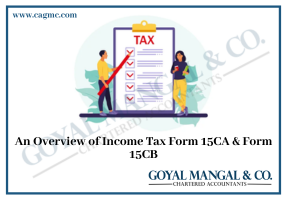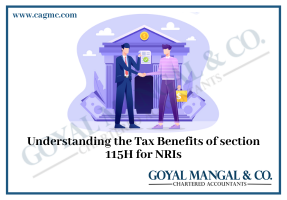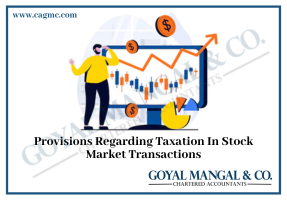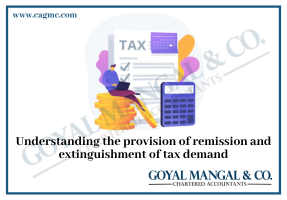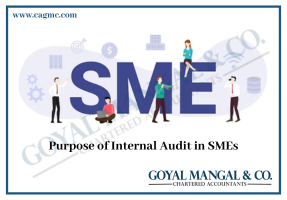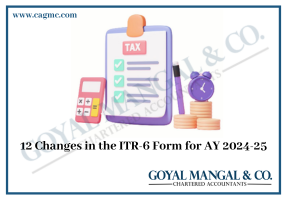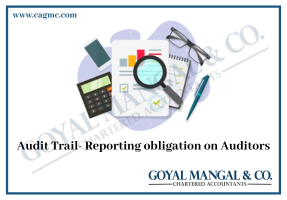
The process of filing Income Tax Return (ITR) is subject to regular updates and for the Assessment Year 2024-2025, several major changes have been implemented. These modifications make the filing procedure easier, improve clarity, and adjust to the changing financial environment. Taxpayers need to grasp knowledge about ITR Updates for Financial Year 2023-2024 to meet the updated requirements and enhance their efficiency while filing taxes.
Table of Contents
Overview
The government has implemented various significant changes with the intention of making the process of filing taxes easier and better for both individuals and businesses. These changes encompass alterations in tax slabs, ITR Updates for Financial Year 2023-2024 procedures, and reporting requirements. Understanding these updates is vital as they can impact your tax liability, filing deadlines, and the overall ease of complying with tax regulations. The last date of filing income tax return in India is different in different cases. We’ll break down these ITR Updates for Financial Year 2023-2024 and provide insights to help you navigate the updated ITR process effectively.

Changes in ITR-1
- The ITR includes a new change in which the amount received from a retirement benefit account must be disclosed. This includes pension funds, annuities, etc
- The assessment also requires disclosure of arrears, or any additional amount received in the updated ITR form.
- Form ITR-1 no longer allows ITR filing of returns if this is done only for deposits greater than Rs 1 crore in the current account
- ITR form now refers to section 153C for returns filed in response to notification
- This Section 153 C reference is to ensure taxpayers understand current legal regulations and assist tax authorities in processing and evaluating these declarations.
Changes in ITR-2
- The ITR includes a new section in which the amount received from a retirement benefit account must be disclosed this includes pension funds, annuities, etc
- The assessment also requires disclosure of arrears, or any additional amount received in the updated ITR form
- VDA calendar is introduced to report returns from virtual digital assets
- If VDA income is treated as a capital gain, the taxpayer must provide quarterly profit distributions according to the capital gains schedule
- RTI requires FIIs/FPIs to disclose their SEBI registration numbers to improve transparency
- ITR forms now refer to section 153C for returns filed in response to the notification
- This reference is to ensure taxpayers understand current legal regulations and assist tax authorities in processing and evaluating these declarations
- Assessments are now required to disclose a donation reference number (ARN) with a deduction of 80G
- The ITR form includes significant changes due to the expiration date of deduction under Section 80-IB
- These changes relate to the deductions enjoyed by industrial companies in Jammu and Kashmir or Ladakh
- Taxpayers must comply with the updated reporting requirements to claim this deduction
- The revised ITR form now includes provisions for reporting transfer of Tax Credit Collected at Source (TCS) to others
- This report ensures proper documentation and tracking of TCS credits transferred between taxpayers
Changes in ITR -3
- The ITR has a new section to disclose amounts received from retirement accounts This amount includes pension funds, pensions, etc
- The notice also seeks disclosure of late fees or additional amounts under US 89A as per his updated ITR form
- VDA has introduced a schedule for reporting profits from virtual digital assets
- If the VDA income is treated as a capital gain, the taxpayer must submit a quarterly breakdown of the gain according to the capital gains schedule
- A ‘Trading Account’ section has been added to the income tax login form to facilitate reporting of sales and income from intraday trading
- Taxpayers must provide information regarding intraday trading activity in this section
- ITR requires FIIs/FPIs to disclose their SEBI registration numbers for greater transparency
- There has been a change in the balance sheet reporting and the taxpayer is required to report the details under Section 40A(2)(b) of the Income Tax Act under the heading ‘Advance payments’ in the ‘Source of funds’ section
- ITR forms now refer to Section 153C for returns filed in response to notifications
- This reference material ensures that taxpayers are aware of the applicable law and supports the processing and evaluation of tax returns by tax authorities
- The valuer is obliged to disclose the donation reference number (ARN) and now he will be deducted 80 G
- The ITR form contains significant changes with respect to the expiration date of Section 80-IB deduction
- These changes relate to the deductions available to industrial enterprises in Jammu and Kashmir or Ladakh
- Taxpayers must meet the latest reporting requirements to claim this credit
- His revised ITR form includes provisions for reporting tax transfer at source (TCS) to others
- This reporting ensures proper documentation and tracking of TCS credits transferred between taxpayers.
Changes in ITR-4
- The ITR has a new section to disclose amounts received from retirement accounts This amount includes pension funds, pensions, etc
- The notice also seeks disclosure of late fees or additional amounts under US 89A as per his updated ITR form
- VDA has introduced a schedule for reporting profits from virtual digital assets
- If the VDA income is treated as a capital gain, the taxpayer must submit a quarterly breakdown of the profit according to the capital gains schedule
- While calculating the net salary, the assessee is required to provide information regarding income from foreign pension funds
- A ‘Trading Account’ section has been added to the income tax form to facilitate reporting of sales and income from intraday trading
- Taxpayers must provide information regarding intraday trading activity in this section
- ITR forms now refer to Section 153C for returns filed in response to notifications
- This reference material ensures that taxpayers are aware of the applicable law and helps tax authorities to process and assess such tax returns
Changes in ITR-5
- Plan to deploy VDA to report profits from virtual digital assets
- If VDA income is treated as capital gains, taxpayers must provide a quarterly breakdown of their profits as part of Schedule 2 for capital gains
- Income tax forms now have a “Trading Accounts” section to facilitate reporting of sales and income from intraday trading
- Taxpayers must provide detailed information about daily trading activities in this section
- ITR requires FIIs/FPIs to disclose their SEBI registration numbers to improve transparency
- ITR form now refers to section 153C for returns filed in response to notification
- This reference is to ensure taxpayers understand current legal regulations and assist tax authorities in processing and evaluating these declarations
- The assesses is required to disclose Donation Reference Number (ARN) now u/s 80G deduction 6.
- The ITR forms incorporate significant changes due to the sunset date for Section 80-IB deduction
- These changes relate to the deduction available to industrial undertakings in Jammu & Kashmir or Ladakh
- Taxpayers are required to comply with the updated reporting requirements for claiming this deduction
- The revised ITR form now includes provisions for reporting transfer of Tax Credit Collected at Source (TCS) to others
- This report ensures proper documentation and tracking of TCS credits transferred between taxpayers
- In case of change in partnership, the company must provide additional information in ITR form
- This disclosure ensures that any changes in the partnership are properly reported and recorded for tax purposes
Changes in ITR-6
- For reporting profits from virtual digital assets, the VDA chart was introduced
- VDA income is treated as capital gains, taxpayers must provide a quarterly breakdown of their income according to the capital gains table
- Appendix Self-occupied properties have been exempted from ITR 6 to prevent companies from listing self-occupied properties
- In the OS schedule it is no longer necessary to declare dividends of 115 BD
- ITR forms now refer to Section 153C for returns filed in response to a notice
- This certificate ensures that taxpayers are informed about applicable legislation and supports tax authorities in processing and assessing such tax returns
- Appraisers must now provide the donation reference number (ARN) without deducting 80G
- ITR forms contain material changes due to expiry of Section 80-IB deductions
- These changes will affect the deductions available to industrial establishments in Jammu and Kashmir or Ladakh
- Taxpayers must meet the updated reporting requirements to claim this deduction
- The revised ITR forms now contain provisions for reporting transfer of taxes collected at source (TCS) for credit to another person
- This reporting ensures proper documentation and tracking of TCS credits transferred between taxpayers
Changes in ITR-7
- The VDA schedule has been introduced for reporting profits from virtual digital assets
- If VDA income is treated as capital gains, taxpayers must provide a quarterly breakdown of their income according to the capital gains table
- ITR forms now refer to Section 153C for returns filed in response to a notice
- This certificate ensures that taxpayers are informed about applicable legislation and supports tax authorities in processing and assessing such tax returns
- The revised ITR forms now contain provisions for reporting transfer of tax at source (TCS) to another person
- This reporting ensures proper documentation and tracking of TCS credits transferred between taxpayers
Takeaway
In summary, the alterations in the ITR Updates for Financial Year 2023-2024 aim to simplify and update the procedure of filing taxes, enhancing its convenience and clarity for individuals paying taxes. It is of utmost importance to remain informed about these changes to abide by regulations and avoid any potential issues. Given the dynamic nature of tax regulations, individuals and businesses are encouraged to stay well-informed and, if needed, consult specialists to successfully navigate the tax landscape.

